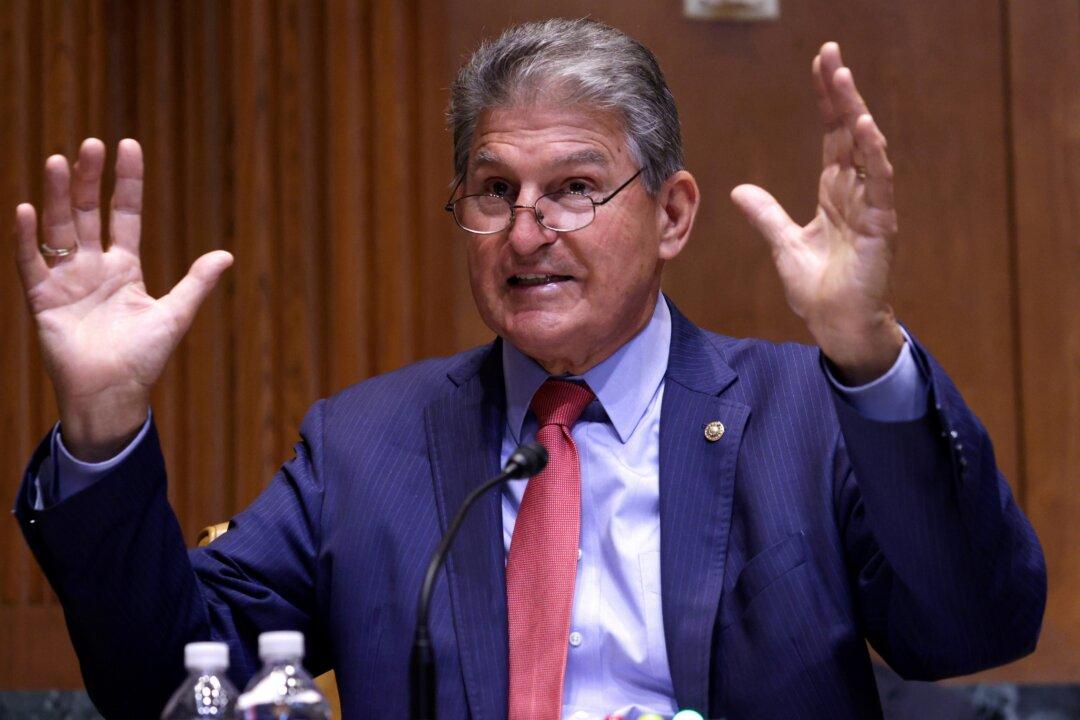Sen. Joe Manchin (D-W. Va.), a moderate who has broken with his party over a slew of issues, took to Twitter on Wednesday to warn that unprecedented inflation is not “transitory” as his party insists, but is only “getting worse.”
Currently, inflation of the U.S. dollar is at its highest level since 1990. According to the Labor Department’s Consumer Price Index (CPI), inflation jumped by 0.9 percent in October alone, more than doubling September’s 0.4 percent increase.





